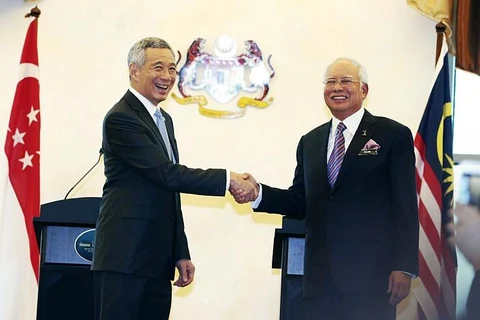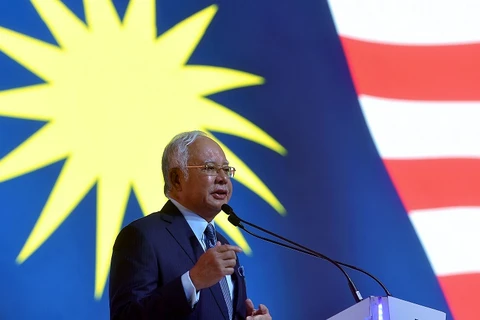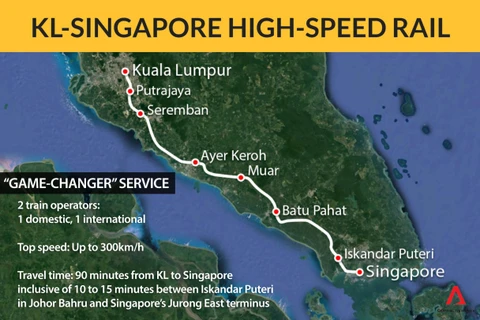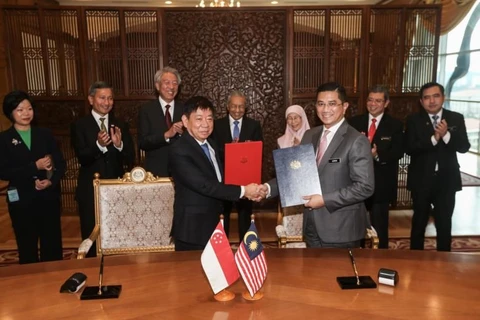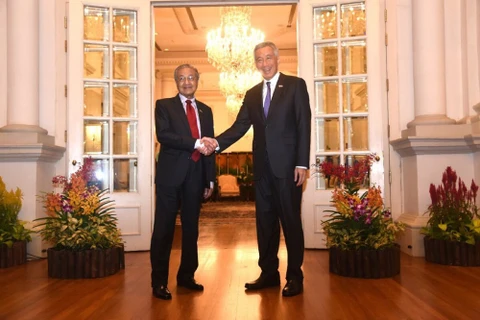Singapore (VNA) – Malaysia and Singapore said that both of them are willing to conduct deeper discussions on the 1962 Water Agreement so as to better understand each other’s viewpoints, according to the Malaysian Ministry of Foreign Affairs.
In response to media queries on November 12 on the bilateral meeting between Malaysian Prime Minister Mahathir Mohamad and Singaporean Prime Minister Lee Hsien Loong, the ministry’s spokesperson said that both sides expressed their differing views on the right to review the price of water under the agreement.
Earlier, the Malaysian PM revealed that the water agreement was one of the key matters raised during his meeting with Lee.
“We managed to raise some past issues which had been regarded as controversial”, Mahathir said.
Lee was quite accommodating in listening to Mahathir’s views, he added, saying that the Singaporean leader was much more open to discussing the matter than it was before, when Singapore had rejected all efforts of re-negotiations.
When asked further whether Singapore had agreed to revise the current price, Mahathir said “they did not say they agree, but at least they appear to be willing to state their case and for us to state our case”.
Officials of both nations will meet and discuss the issue shortly. –VNA
VNA

